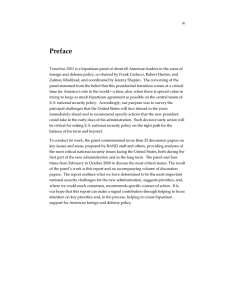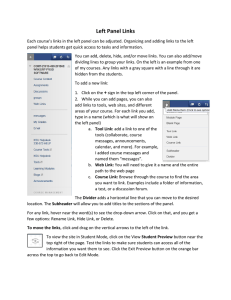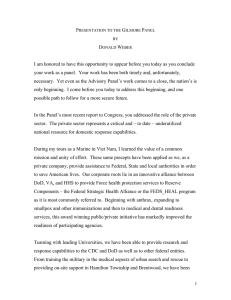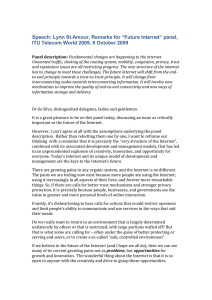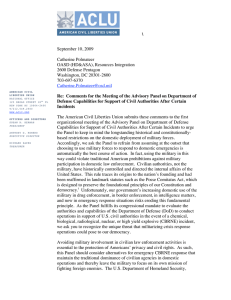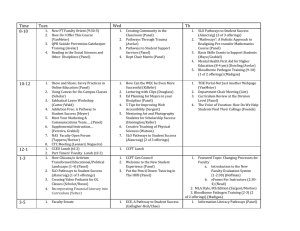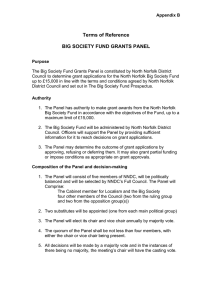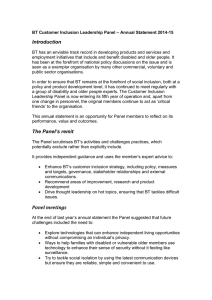Preface
advertisement
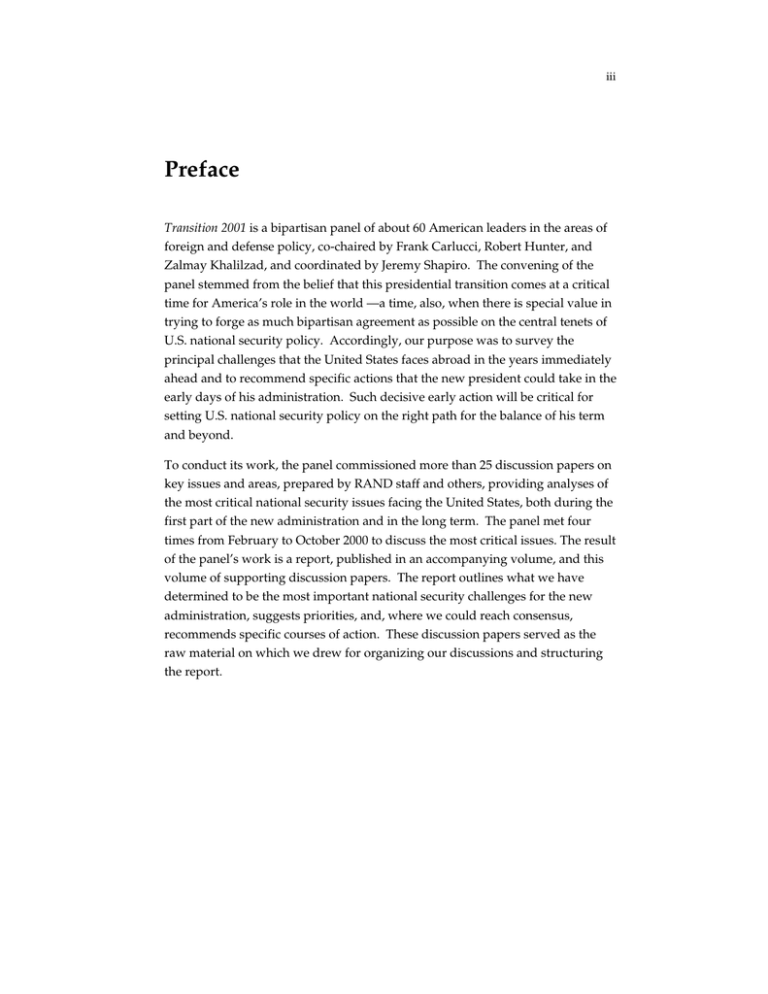
iii Preface Transition 2001 is a bipartisan panel of about 60 American leaders in the areas of foreign and defense policy, co-chaired by Frank Carlucci, Robert Hunter, and Zalmay Khalilzad, and coordinated by Jeremy Shapiro. The convening of the panel stemmed from the belief that this presidential transition comes at a critical time for America’s role in the world —a time, also, when there is special value in trying to forge as much bipartisan agreement as possible on the central tenets of U.S. national security policy. Accordingly, our purpose was to survey the principal challenges that the United States faces abroad in the years immediately ahead and to recommend specific actions that the new president could take in the early days of his administration. Such decisive early action will be critical for setting U.S. national security policy on the right path for the balance of his term and beyond. To conduct its work, the panel commissioned more than 25 discussion papers on key issues and areas, prepared by RAND staff and others, providing analyses of the most critical national security issues facing the United States, both during the first part of the new administration and in the long term. The panel met four times from February to October 2000 to discuss the most critical issues. The result of the panel’s work is a report, published in an accompanying volume, and this volume of supporting discussion papers. The report outlines what we have determined to be the most important national security challenges for the new administration, suggests priorities, and, where we could reach consensus, recommends specific courses of action. These discussion papers served as the raw material on which we drew for organizing our discussions and structuring the report.
